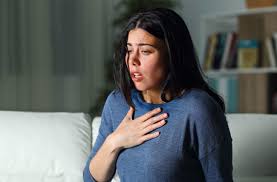Anxiety Attack or Panic Attack?
Do You Need Help Learning How To Cope With Anxiety Or Panic Attacks?
The terms anxiety attack vs. panic attack are often used interchangeably, but they are two very different things. While they can have some of the same symptoms, there are distinct differences in how they come on, how long they last, how they are triggered, and how they are treated.
There are some similarities between the two as well, such as risk factors, physical symptoms, and how to handle an attack. However, it is important to understand the difference between anxiety attack vs. panic attack so that you can accurately report symptoms and problems to your doctor. They are often treated in different ways, so it is important to know whether you are having anxiety attacks or panic attacks.
Onset Differences
One of the biggest differences between anxiety attack vs. panic attack is how they come on. An anxiety attack usually has a gradual onset. Other symptoms of anxiety usually precede it. It is also usually caused by a specific situation that can be pinpointed as the cause for the anxiety attack.
On the other hand, panic attacks are spontaneous. They have an immediate onset, usually out of the blue, with no gradual build up. They can come on at any time, regardless of the situation going on around you. Most frequently no cause can be pinpointed as the reason for the panic attack.
However, some studies suggest that there are precursors to panic attacks. These precursors may not be noticeable to the patient if they are not paying close attention to their bodies. The study found that up to 45 minutes before a panic attack there were changes in respiratory and heart rate functions.
This does not mean that panic attacks have a cause necessarily. It simply shows that the body does build up to the panic attack, regardless of how sudden it may seem. However, these changes may not be noticeable to the patient, unless they are closely monitored with ambulatory monitoring.
Differences In Symptoms
There are some differences in symptoms between anxiety attack vs. panic attack. While the physical symptoms are similar, they can vary in intensity between the two types of attacks. Also, anxiety attacks usually come with more symptoms than panic attacks, because they have a gradual onset.
Anxiety Attack
With an anxiety attack, there is a gradual onset of the attack. You will feel some symptoms of anxiety before the attack ever happens, as it comes on, and as it dissipates. You may have feelings of apprehension or worry, distress, restlessness, or fear. These symptoms usually start before the actual attack and persist long after the attack is over.
Panic Attack
With a panic attack, the onset is immediate, and out of the blue, so you won't have the same symptoms as an anxiety attack. With a panic attack, you will feel debilitating fear. You will also have a feeling of being afraid of losing control. You may even have a fear of dying, as the physical symptoms of the attack may make you feel as though you are about to die. Panic attacks also tend to come with a feeling of detachment from the world around you, called derealization, or detachment from yourself, called depersonalization.
Physical Symptoms Of Both
The physical symptoms of anxiety attack vs. panic attack are the same. The difference here is in the intensity. One study found that anxiety attacks in which a specific situation or stimuli perpetuated the attack held stronger, more intense physical symptoms than panic attacks that came on out of the blue.
The most common physical symptoms of anxiety and panic attacks are:
- Palpitations
- Dizziness/lightheadedness
- Nausea
- Chest pain
- Sweating
- Shortness of breath
Other symptoms that may occur with anxiety and panic attacks include:
- Tightness in the throat, feeling as though you are choking
- Trembling or shaking
- Numbness or tingling
- A headache
Again, these physical symptoms can be felt with anxiety or panic attacks in equal measure. However, the symptoms could be more intense and last longer with anxiety attacks, because they are situational. If the situation persists, the attack could last quite some time.
Differences In Duration
There are distinct differences in the duration of anxiety attack vs. panic attack. A panic attack comes on out of the blue and lasts only about an average of ten minutes. They do not last long, and symptoms quickly dissipate after the attack is over.
Anxiety attacks can last much longer. They have a gradual onset, which can make them seem as though they last forever. Also, if the situation is causing the anxiety attack persists, the attack is likely to last until the situation changes, or you are removed from the situation. Symptoms of the anxiety attack, such as restlessness, worry, and distress, could last for some time after the anxiety attack is over.
Differences In Triggers
There are also differences in triggers between anxiety attack vs. panic attack. The exact causes or triggers of panic attacks are largely unknown. They come on out of the blue, with no discernable cause. Anything or nothing at all could trigger them. It is just simply hard to say with panic attacks because they seemingly have no cause when the client looks back on why they had the panic attack.
With anxiety attacks, the triggers are usually situational. Someone who has extreme social anxiety might have an anxiety attack when faced with a crowd of people. Someone who has a phobia of closed spaces might have an anxiety attack in a small elevator. Someone who has dental anxiety might have an anxiety attack at the dentist.
There are many possible triggers for anxiety attacks. It depends on the person, and what triggers their anxiety the most. Different people have different fears, phobias, and levels of comfort with different situations. The things that trigger your anxiety attacks may be very different from the things that trigger someone else.
Risk Factors For Both
The risk factors of anxiety attack vs. panic attack are the same. If you have these risk factors, you are more likely to have anxiety attacks or panic attacks. However, keep in mind that little is known about what causes anxiety or panic attacks. These are just some of the common denominators that have been noted over time in various studies.
The risk factors for anxiety and panic attacks are:
- Experiencing trauma
- Experiencing a stressful life event
- Experiencing ongoing stress or worries
- Having a chronic health condition
- Having another mental health disorder
- Having a family history of anxiety or panic disorders
- Abusing drugs or alcohol
In addition to these risk factors, some other common things have been noted about people that have anxiety and panic attacks. For example, women are much more likely to have anxiety or panic attacks than men. Some people also may have an anxious personality or inherent restlessness that can also put them at risk for these attacks.
Differences In Treatment
One of the biggest differences in anxiety attack vs. panic attack is in how they are treated. This is why it is important to understand the difference so that you can have an informed and productive conversation with your doctor or therapist. Because anxiety attacks are a symptom of anxiety and panic attacks have no discernable cause or reason, they must be approached differently.
Anxiety Attacks
Anxiety attacks are often treated as a symptom of overall anxiety. There are many treatments for anxiety that you can undergo that will help prevent anxiety attacks. There are medications for anxiety that can be taken on a routine basis to help keep you calm.
There are also good therapy options for treatment of anxiety. Cognitive behavioral therapy allows you to learn how to change your thinking and behavior through the expedient of being mindful of your thoughts and actions and making conscious decisions to change them. Cognitive behavioral therapy works well in managing anxiety attacks because you can learn to keep yourself calm and worry-free, which will stop the gradual onset of the anxiety attack.
Panic Attacks
Panic attacks must be treated differently. Because they may be infrequent and cannot often be predicted.
Therapy can be a helpful way to learn how to navigate panic attacks. Therapy can help you learn what to do when you have a panic attack to try to make it more bearable for you, and try to make the attack last as little duration as possible.
What To Do If You Have An Attack
What you do when you have an anxiety attack or panic attack can make a difference in how long it takes for you to calm down and return to normal. Handling an attack in the right way can help you alleviate symptoms and keep you safe while the attack is happening.
When you feel an attack coming on, try to take slow deep breaths. Focus on your breathing and don't allow it to quicken. It is also important that you recognize what is happening and accept it. Remind yourself that this has happened before, and the symptoms will pass.
You can also use relaxation techniques to try to get yourself through the attack. Try to visualize a peaceful place. Or you can try to ground yourself by looking around the room for five things that you can relate to your senses. Grounding yourself in this way can help you stop the detached feeling that often comes with panic attacks.
Getting Help
If you have had anxiety or panic attacks, you should seek out some professional help. While the tips in this article can help you identify if you are having anxiety attack vs. panic attack, only a therapist can help you address the issues.







